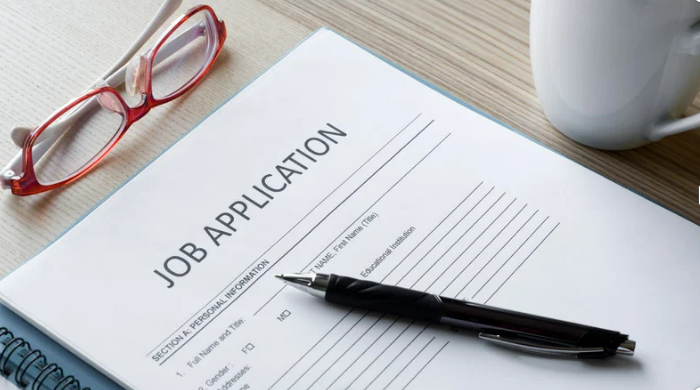Table of Contents
The most challenging part of the job hunt is often the transition phase. You’ve polished your CV, composed a cover letter, and applied for the job. But it’s been a few days, if not a week, and you haven’t heard anything. You’re probably wondering two things: How long should I wait? What should I do in the meantime? Unfortunately, the first question has an answer: It depends. You are not alone in this plight. According to a recent survey, 48 percent of respondents claimed that waiting to hear back from companies is very annoying. Let’s look at how long does it take to hear back from a job application.
How Long Does It Take To Hear Back From A Job Application?
How Much Time Does It Take To Get A Response Regarding A Job?
 The recruiting process may seem to be lengthy but bear in mind that the timetable for employers is not the same as the timing for candidates. While some organizations fill openings fast, others take their time. The urgency to fill the post might vary depending on what is going on inside the firm. 44 percent receive back from companies within a few weeks after applying, while 37 percent hear back within one week.
The recruiting process may seem to be lengthy but bear in mind that the timetable for employers is not the same as the timing for candidates. While some organizations fill openings fast, others take their time. The urgency to fill the post might vary depending on what is going on inside the firm. 44 percent receive back from companies within a few weeks after applying, while 37 percent hear back within one week.
- Only 4% get a response within one day.
What To Do While Waiting For A Response
Though it might be stressful, you should be patient if the recruiting process takes longer than expected. Focusing on the second question—What should I do while I wait? — will help you relax.
Is It Typical To Obtain A Job Within A Month?
It is another question with no simple solution. Some individuals get the first job they apply for (though this is uncommon), while others may spend months or even years looking for the ideal match.
The Following Factors Will Influence How Long It Will Take You
 The state of the economy and the level of unemployment
The state of the economy and the level of unemployment- The current state of the industry
- The team of employees in a sector is available in a particular place.
- Qualifications and experience of the candidate
- Time and effort put into the job hunt
1. Send A Follow-Up Email To Your Employer
Consider sending a follow-up email after one week (or the length of time required by the business) to express your interest in the job and remind them of any pertinent data on your application.
Your follow-up email should be concise and include the following elements
- Subject Salutation and recipient’s name
- A statement that is personable
- Full name, position applied for, and reasons why you are a suitable fit
- Request an update on the progress of your application.
- A closing statement using forward-thinking language
- Salutation at the end
- complete name
- Contact information
2. Make A Phone Call To Your Boss
After sending a follow-up email to an employer, you may opt to write a second email or make a phone call after some time has passed. Call during business hours to increase your chances of speaking with a company right employee.
3. Continue To Apply For Other Jobs
While you wait for a response from a possible employer, broadening your job search and applying for other openings will offer you the most excellent chance of finding new employment. Even if the job you’re waiting for seems like the “ideal” one, keeping looking will bring you other opportunities—9.8 new positions are uploaded to Indeed every second.
In practice, you are still a job seeker until you have an offer letter and contract in hand, so continue your job searches and applications.
4. Self-Care Is Crucial
Finally, and maybe most importantly, look after yourself. It might be discouraging not to hear back from potential employers. Allow yourself time to process your genuine disappointment, but don’t linger on it. Spending time with friends and family, working out, volunteering, or taking up a new hobby—however, you define self-care—find methods to make yourself feel good even while job hunting.
Finally, keep in mind that your efforts will reward, albeit maybe not in the time frame you like. While waiting for your next chance, take care of yourself, have a happy attitude, and put your best foot forward when you receive that callback.
5. Be Cautious In Your Employment Hunt
 Are you concerned that your employer may discover that you are searching for a new job? Here are 12 strategies for keeping it secret, ranging from scheduling telephonic interviews on vacation days rather than sick days to remaining focused on your present work.
Are you concerned that your employer may discover that you are searching for a new job? Here are 12 strategies for keeping it secret, ranging from scheduling telephonic interviews on vacation days rather than sick days to remaining focused on your present work.
6. Use Linkedin Correctly
If your LinkedIn profile is collecting dust, it’s time to clean it up. Learn how to improve your profile and expand your professional network to promote yourself using this crucial social networking tool.
7. Make Yourself Familiar With The Recruiting Procedure
If you don’t know what to anticipate from the recruiting process, whether you’re searching for an entry-level job or want to try something new after years of working for the same firm, it’s easy to get upset. Read our recruiting process guide to learn what to anticipate every step of the route.
8. Network, Network, And More Network
Did we say network? You’re not alone if you despise networking. However, many individuals are finding work via networking and word of mouth.
Conclusion
The usual response time is one to two weeks or around 10-14 days after submitting your application papers. In contrast, some jobs, such as those for government employment, may take six to eight weeks to respond. However, the time it takes to hear back from a job application determines by the company’s urgency to fill a position and the number or volume of candidates an employer must assess.
Submitting a job application is satisfying, but hearing back from the company is more enjoyable! Unfortunately, every day without an answer increases your anxiety, and you begin to wonder whether you’ll ever hear back. In the preceding post, you learned how long it takes to hear back after sending a resume and what you can do to increase your chances of receiving answers in less time.

